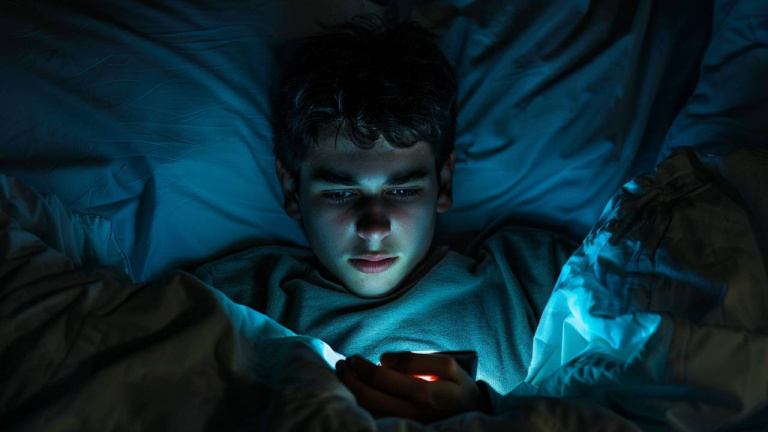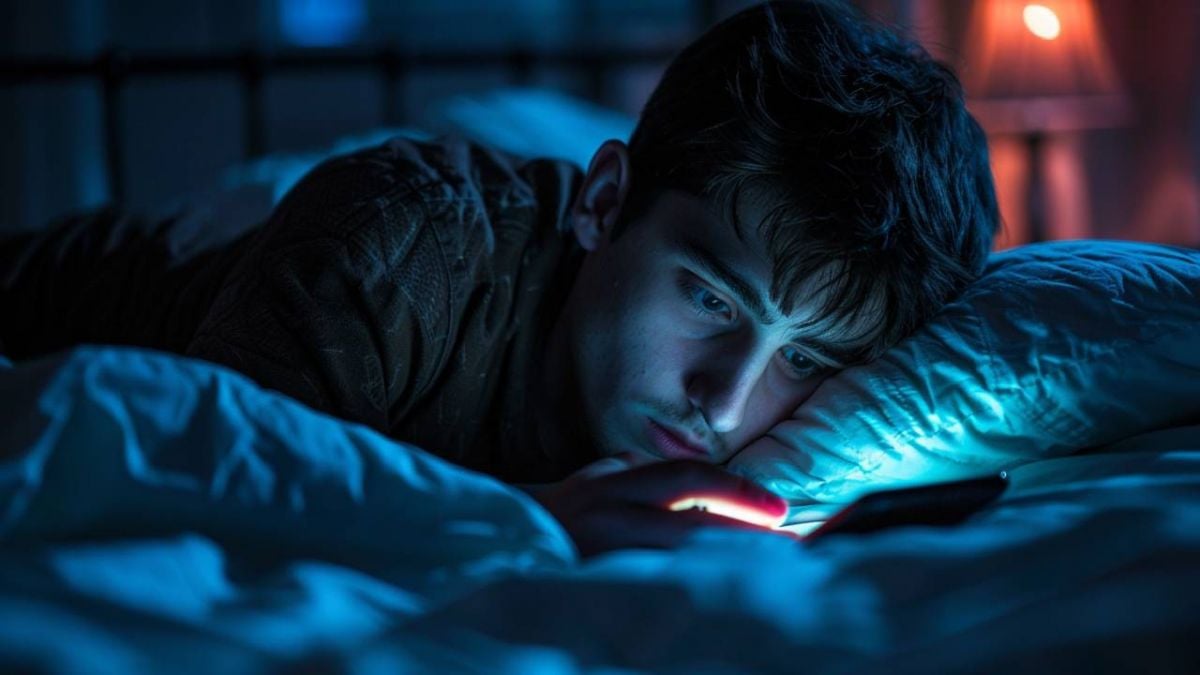GVTech News If the question is why we stay up so late at night, science has the answer: sleep procrastination
If you're sleep deprived at night, but can't stop scrolling social media, this is your brain's revenge.
A bad habit we all (or almost) have.
Who hasn't found themselves scrolling through social media in the wee hours of the morning, extremely tired, knowing they have to wake up early the next day, but still fighting sleep? Has this happened to you once? You are not an isolated case, and science has given this phenomenon a strange name: Revenge procrastinates sleep. This form of procrastination is a psychological phenomenon that attracted the attention of researchers in the Netherlands and was described in… Published in Frontiers in psychology In 2014. This phenomenon is represented by postponing the time to go to sleep without a clear logical reason, sacrificing rest time, and being fully aware that such behavior will lead to exhaustion of the body the next day..
Its name comes from similarities to the counterproductive logic of task procrastination, which causes mental anguish and stress by putting off a task that, yes or no, you'll have to do later, but in less time. Researchers have found that this behavior is closely linked to a lack of free time during the day. During the night, when tasks have already been completed, the brain tries to compensate by taking time out to feel like it is doing more than just working, studying, or running the house. Hence the term “revenge”, because in a certain way the brain rebels and demands control over your free time, since the tasks did not leave it room to maneuver during the day.. This is a kind of unconscious revenge on your inner self.
Image source: Midnight Journey
according to research Led by the Frances Payne Bolton School of Nursing in Cleveland, Not getting enough rest by delaying bedtime has serious health consequences. This is confirmed by many studies that indicate that lack of sleep can lead to increased levels of stress, poor concentration, memory loss, and increased risk of cardiovascular disease and Alzheimer's disease, in addition to increased susceptibility to mental illness.
Self-punishment
The psychological phenomenon of procrastination is associated with postponing a task that we consider unpleasant or uninspiring, and replacing it with another that brings us joy. In other words, it involves replacing the perception of something negative with something pleasant. In contrast, sleep procrastination does not follow this pattern, because sleep is not viewed as an unpleasant activity. We all love to sleep and suffer when we don't. This is why sleep procrastination fascinates psychologists so much.
Image source: Midnight Journey

Staying up late because you are with friends, at a social event, studying, finishing a task, or doing other work It's not considered procrastination, because there's actually a reason to use that break time on another task. On the other hand, watch another video, start another episode of your series, read another chapter of your book, or finish another mission in your game It has no logical justification, and you know that fatigue will take its toll the next day. according to Gallup study The state of sleep in America in 202233% of Americans report that they do not get enough sleep, and 70% of young people under the age of 30 say they have trouble sleeping due to stress.
Stop your mind from taking revenge
Research in this area suggests that people who tend to procrastinate in other areas of their lives, who work difficult jobs, or who tend to suppress their desires throughout the day due to a busy schedule or with too many obligations, tend to procrastinate at bedtime. . If you think you're a bedtime procrastinator, experts suggest paying attention to your well-being and setting realistic goals before bed And adopt new habits to improve sleep hygiene.
You should also feel free to schedule fun activities, exercise, or simply give yourself time to do nothing, rather than organizing a hectic schedule. Full of things you can do without having time for yourself. The question is whether your brain will respond to you in the evening for not giving it time to relax and play.

“Music guru. Incurable web practitioner. Thinker. Lifelong zombie junkie. Tv buff. Typical organizer. Evil beer scholar.”







More Stories
The top 10 trends for 2024 for designing your outdoor space
Space tourism. A Frenchman (civilian) will spend a few minutes in space in Jeff Bezos' capsule
Cameroonian woman winner of the Women and Science Award